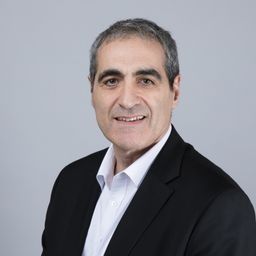
Pr. Serge Fdida is a Professor with Sorbonne Université (formally UPMC) since 1995. His research interests are related to the future internet technology and architecture. He has been leading many research projects in Future Networking in France and Europe, notably pioneering the European activity on federated Internet testbeds. He established PlanetLab Europe in 2007 and the OneLab and FIT facilities. Serge Fdida has published numerous scientific papers, in addition to a few patents and one rfc. He was one of the founders of the ACM Conext conference, general chair of ACM Mobicom 2015 and IEEE Infocom 2019. He is a Distinguished ACM Member and an IEEE Senior member. Serge Fdida has also developed a strong experience related to innovation and industry transfer, - he was the co-founder of the Qosmos company, - one of the active contributor to the creation of the Cap Digital cluster in Paris and President of EIT Health France.
Serge Fdida also contributed to the governance of Higher Research and Education institutions as Vice-President European affairs of UPMC (2014-2018) and VP International Development of Sorbonne Université (2018-2021). He also was a member of the LERU Policy Committee.
He is currently coordinating SLICES, the first scientific instrument in Digital Sciences, supported by the EU ESFRI framework and is a co-founder of the Hopcast startup company.
Sessions in which Mr Serge Fdida participates
sexta-feira 9 junho, 2017
segunda-feira 4 junho, 2018
quarta-feira 6 junho, 2018
sexta-feira 3 setembro, 2021
This session will then discuss the future research roadmap on Internet of Things, edge computing and Cloud foreseen in the upcoming European research program. It will more specifically discuss and explore the options to strengthen international cooperation in the Internet of Things and networking technologies research domains, including through international research infrastructure perspective. This session organized by Slices SC project will also count with the participation of experts fr...
quinta-feira 23 junho, 2022
Our daily life has become more and more digital, from the way we commute to work to how we watch a movie in the evening: a “digital society” that uses a wide range of Next Generation Internet applications. Ensuring safe and trustworthy technologies is a real challenge for research, which must deal with rapidly evolving requirements and heterogeneous features in a highly competitive environment.